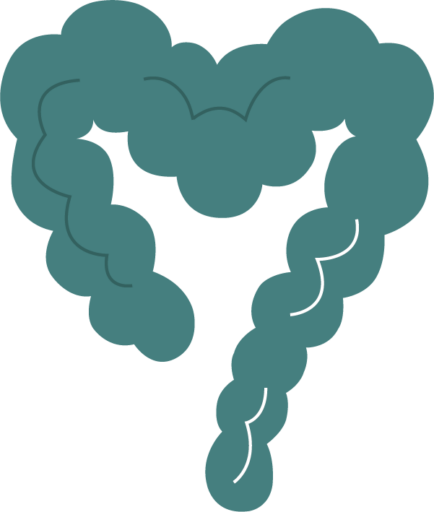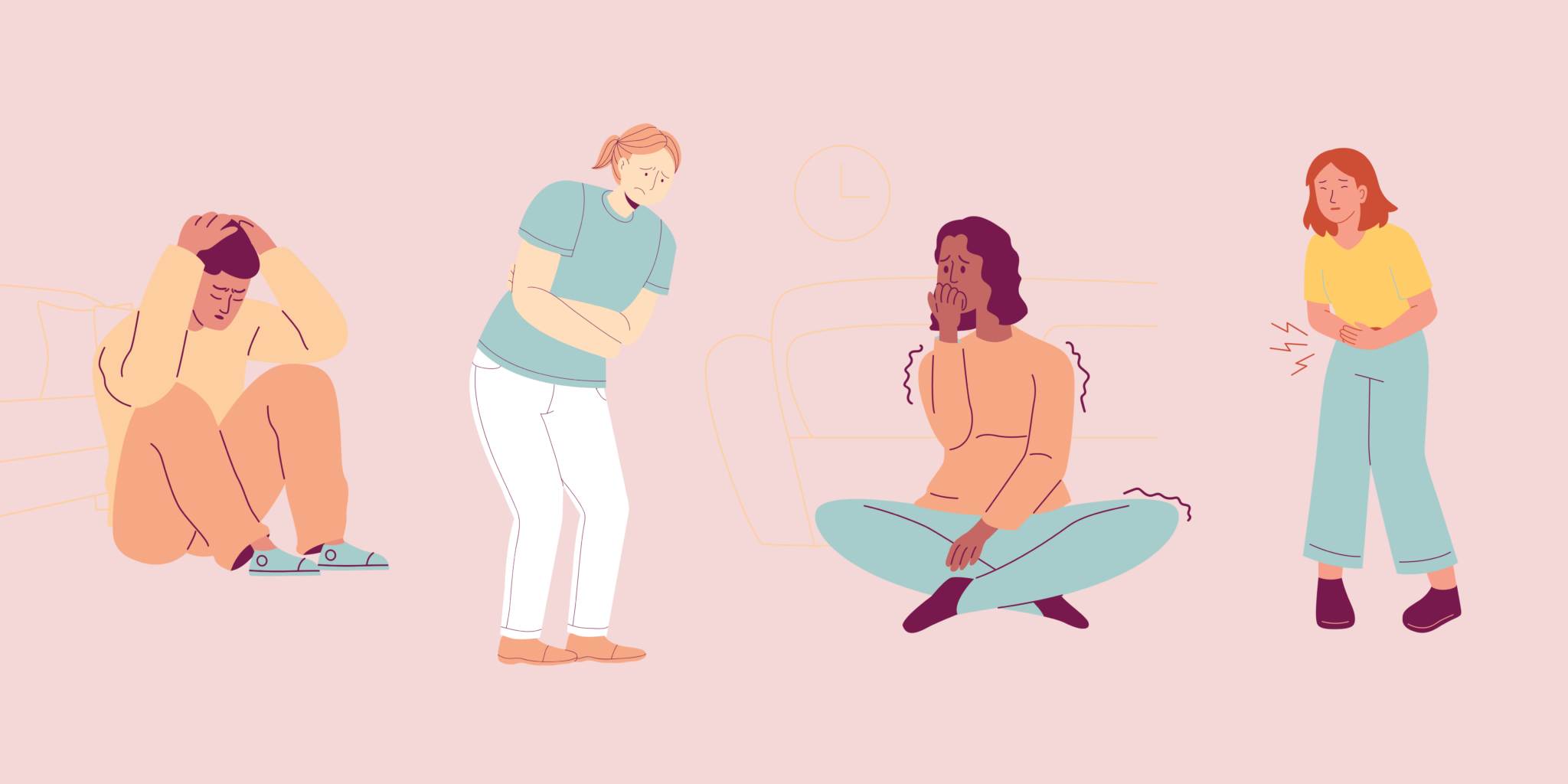
Weight loss with IBS
Do you find it difficult to lose weight with IBS because healthy foods seem to worsen your symptoms? You’re not alone. Nutritional advice can be confusing. One person may tell you to avoid fibre entirely, another claims a high-fibre diet is key to weight loss, while a third suggests focusing on counting calories. Indeed, it’s not always easy to navigate weight loss with IBS. Let’s explore some strategies for weight loss that are tailored for those with sensitive stomachs.
Weight and IBS
When it comes to weight and IBS, symptoms can affect weight in both directions. Some people lose their appetite when their stomach acts up, resulting in fewer calories consumed and subsequent weight loss. Others may experience weight gain due to their digestive issues. This can happen if you fall into monotonous eating habits, opting for higher-calorie foods out of fear of triggering symptoms.
Recent research suggests there may be a direct link between obesity and IBS. The theory is that certain hormones produced in the gastrointestinal tract help regulate weight, and these hormones may be present at abnormal levels in people with IBS—either higher or lower than expected. These hormonal changes might impact the ability to maintain a healthy weight. More research is needed in this area.
Eat Plenty of the Right Fruits and Vegetables
Everyone knows fruits and vegetables are nutritious and filling, and a high intake is generally recommended for weight loss. But if you have IBS, you might worry that high-fibre foods will aggravate your symptoms. However, it’s not fibre per se that usually causes issues, but rather something called FODMAPs—short-chain carbohydrates found in many foods.
The FODMAP content of most fruits and vegetables has been analysed, allowing us to identify those that are generally well-tolerated by people with IBS.
Examples of low-FODMAP fruits and vegetables suitable for weight loss with IBS:
- Kale
- Broccoli
- Green beans
- Carrots
- Bananas
- Kiwi
- Raspberries and blueberries
Most people with IBS can also eat fruits and vegetables that contain more FODMAPs without triggering symptoms, as long as the portion size is kept small. It’s all about how much and how often you eat these foods. You can increase your intake by including fruits and vegetables at every meal. Try a green smoothie for breakfast, have a banana as a snack, and fill half your plate with vegetables at lunch.
Psst! It’s good to know that raw vegetables can be tricky for your stomach, even if they are low-FODMAP. If you know you’re particularly sensitive, it might be better to opt for cooked or steamed vegetables.
Stay full with protein
Do you constantly struggle with hunger and cravings when trying to lose weight? Focus on increasing your protein intake. Protein is the most satiating nutrient and doesn’t cause spikes in blood sugar. Pure protein sources also tend to be gentle on the stomach.
Examples of healthy protein sources:
- Chicken
- Eggs
- Nuts
- Fish and seafood
- Quorn
- Seeds
- Tofu, tempeh, seitan (for those without coeliac disease)
Choose healthy fats
Heavily fried and fatty foods can trigger IBS symptoms, even though they don’t contain FODMAPs. This is because high-fat intake can increase gut motility and sensitivity in some people with IBS. On the other hand, completely eliminating fats isn’t ideal for weight loss or managing IBS. The key is to choose healthy fats and spread them evenly throughout the day.
Examples of healthy fat sources:
- Fatty fish (e.g. salmon, anchovies, or herring)
- Olive oil and rapeseed oil (use as your main cooking oils)
- Nuts (e.g. walnuts, Brazil nuts, and peanuts, which are low-FODMAP)
- Avocado (low-FODMAP in small amounts)
- Seeds (most seeds are low-FODMAP, such as flaxseeds, chia seeds, pumpkin seeds, and sunflower seeds)
Avoid "empty calories"
When trying to lose weight, sweets, snacks, and fast food are the first things to cut back on—whether you have IBS or not. Heavily processed foods are often packed with sugar, refined carbs, and unhealthy fats, which can lead to both weight gain and IBS symptoms—the two things you want to avoid. Focus on whole foods like vegetables, fruits, nuts, seeds, and lean animal products.
Psst! Even if you’re trying to lose weight, it’s okay to enjoy a chocolate bar or some snacks now and then. Don’t be too hard on yourself—just keep an eye on how often and how much you indulge.
Some final tips for weight loss with IBS
- Cook at home whenever possible. Home-cooked meals give you full control over what you eat, making it easier to limit high-FODMAP foods.
Plan, plan, plan. It may seem obvious, but planning is key to success in both weight loss and keeping your IBS in check. Take the time to make a weekly meal plan, shop at your own pace, and you’ll find it much easier to make good food choices when you’ve prepared and stocked up on healthy options.
Choose the least bad option. No matter how well you plan, you’ll sometimes find yourself in situations where making a good food choice is challenging. Maybe you end up at a burger joint on a road trip. Instead of thinking, “it’s over,” try to make the best of the situation. Have the burger, but skip the fries and soda—choose the least bad option.
Focus on adding something healthy, rather than removing something unhealthy. It’s easy to concentrate on what you need to “cut out” when trying to lose weight. But this can be a demotivating approach in the long run. Instead, think about what you can add to make your meal better. Maybe you could toss in a salad, steam some broccoli, or munch on a carrot alongside your meal. No meal is so bad that it can’t be improved by adding something healthy!
Sofia Antonsso
Reg. Dietitian, Belly Balance




